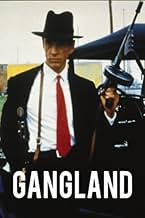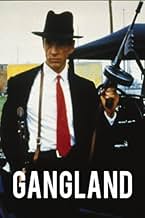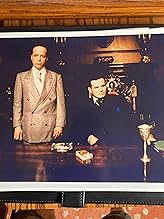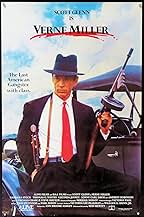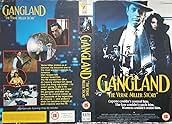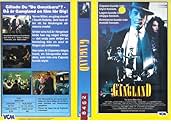It's really funny - watching "Verne Miller" today, after the triumph of "The Miller's Crossing". Where Coen brothers weave a brilliantly tricky and slick tale of deceit and treachery, director Rod Hewitt chooses more simple and straightforward approach to a story of real gangster Verne Miller who once has been as famous as Al Capone. And the man was worth it. Verne Miller began his criminal career during "the roaring twenties" and had been killed in 1933 (his killers were never found). His name was on the front pages for almost a decade and yet he remained a mystery. He liked to show off: once he forced his victim to inform the newspapers about his own death (the man was executed by Miller a few moments later with a receiver in his hand - thus providing reporters with the first "live" murder coverage in history). As irresistibly sexy as imaginatively cruel, this man was a true Don Juan: women loved Miller and stayed loyal to him not only in his days of glory but even when he became desperate and ill animal, hunted by police, FBI and criminals. Larger than life and bigger than his time, Verne Miller was also a gentleman: he couldn't fail a friend as well as he couldn't miss a shot - that's why he didn't survive in the world of organized crime. Film's stylized, half-documentary style (probably imposed by the budget restraints) paradoxically clicks with Miller's outrageous story (a little more of "attitude" - and it would become utterly camp). Hewitt's direction sometimes is too reserved and detached, but he manages to avoid both romantization and cheap moralism while Scott Glenn gives a winning performance as Vern Miller - he plays him as true crime artist, vulgar and pathetic poet of adrenalin rush. Of course, the material itself is very rewarding, but it's Glenn's strong presence that makes Miller's flights of fancy quite convincing - for example, once he fools the enemy and his bodyguards by pretending a mannequin with a painted face. While other actors occasionally slip into self-parody, Glenn shines in both action and romance, exuding inner force and raw sexuality. Looking eerily Bogartian with his rugged face and sardonic grin, Glenn is the main reason to watch this movie, as repulsively charismatic as its protagonist. Verne Miller, sporting garish red ties and old-fashioned code of honour, seems an ironic monument to American individualism, crashed by corporative society - a lonely, tragic figure in a bleak, desolate landscape. It's a pity Vern Miller hadn't been born fifty years earlier. It's a pity Scott Glenn didn't end up in "The Miller's Crossing".

